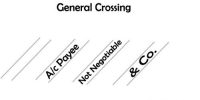The advisability of Lending by a Banker against Goods
In the case of lending, some principles should be followed by banker against goods. The banker should satisfy himself regarding the character, capacity, and capital of the borrower. Some advisabilities of lending by a banker against goods are stated below:
Quality of goods: Generally, a bank should accept goods which could be marketed easily, quickly and standard quality in nature. Because there exists greater risk if the goods are not a good quality which is taken as security.
Marketability: Goods are tangible securities and are better than guarantee and, bill of exchange. If a borrower makes default, the banker can realize his duties by disposing of the goods in the market.
Price: Banker should take those goods which have a ready market. They can be sold off easier than other kinds of securities. The existence of a ready market makes the goods reliable and safe security.
Short period: Normally, advances against goods are for short periods because of seasonal character. Therefore, there is no necessity to lock up funds for long period.
Stability: Generally, banks accept goods which are necessaries of life such as rice, Wheat, sugar, cotton etc. The price of such goods does not fluctuate widely.
Evaluate: It is easy to evaluate the prices of goods such as wheat, rice, grains, pulses etc. Market trends and reports are available in respect of almost all commodities in newspapers. So banker should take these types of goods as security.
Margin: In case of goods, demand and, nature determine the margin. Depending upon the quality and risk the margin be prescribed.
Finally, we can say that these above points are considered as the principles of lending by a banker against goods. The banker wants to see that you have built your preparation based on a sound study that takes into account the market, the competition, and the economic context.















